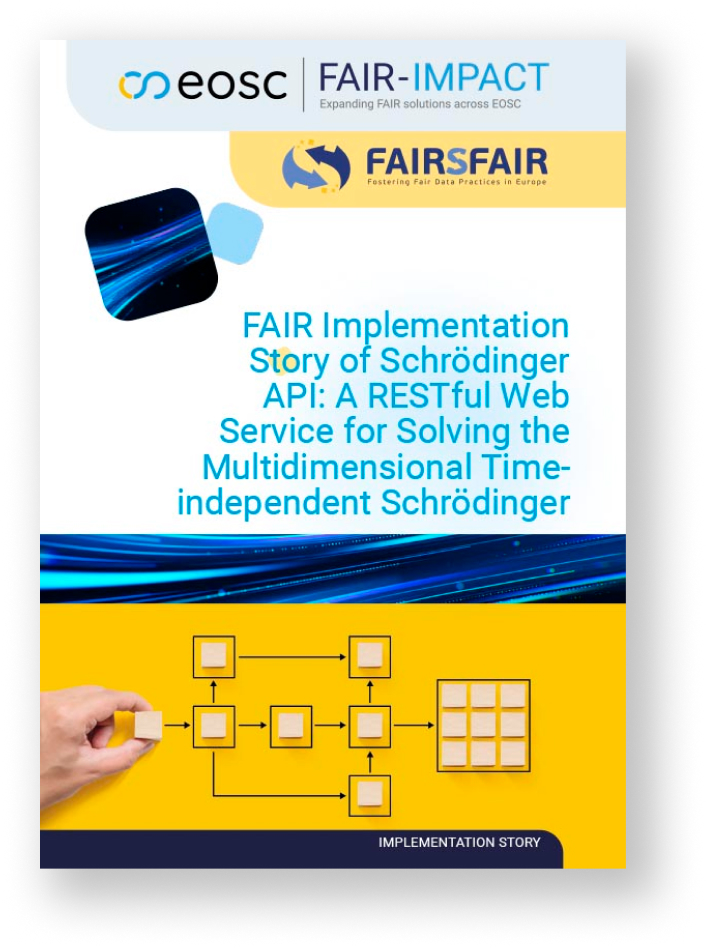FAIR Implementation Story of Schrödinger API: A RESTful Web Service for Solving the Multidimensional Time independent Schrödinger
Software plays a crucial role in academic research, not only as a tool for data analysis but also as a research outcome or result, or even the object of research itself. FAIR (Findable, Accessible, Interoperable, Reusable) research software can increase the transparency, reproducibility, and reusability of research. For this to happen, software needs to be well-described (by metadata), inspectable, documented, and appropriately structured so that it can be executed, replicated, built-upon, combined, reinterpreted, reimplemented, and/or used in different settings. The FAIR4RS Principles aim to guide software creators and owners on how to make their software FAIR. FAIR-IMPACT offered two support actions designed to enhance the FAIRness and impact of research software:
- Assessing and improving existing research software using a new extension of F-UJI, which implements some of the metrics for automated FAIR research software assessment.
- Implementing the Research Software MetaData (RSMD) guidelines for better archiving, referencing, describing, and citing research software artefacts.
This FAIR Implementation Story outlines the specific aims and actions of Ss. Cyril and Methodius University in Skopje in relation to their participation in one or both support actions.
"High-quality metadata is essential for the discoverability, usability, and reusability of research findings; poor metadata can ultimately undermine efforts toward FAIR compliance."
Supported applicants: Bojana Koteska, Anastas Mishev, Ljupco Pejov - Ss. Cyril and Methodius University in Skopje
